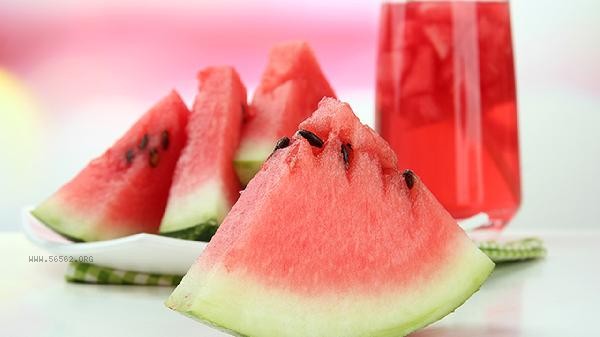Watermelon and yogurt can be eaten together without causing adverse reactions and can also supplement various nutrients. The combination of the two can increase the intake of dietary fiber and calcium, but attention should be paid to the dosage and adaptability of special populations. Watermelon is rich in water, vitamin C, and lycopene, and has a cooling and diuretic effect; Yogurt contains high-quality protein, calcium, and probiotics, which help regulate the gut microbiota. When consumed together, the refreshing taste of watermelon can neutralize the stickiness of yogurt and enhance the flavor level. From a nutritional perspective, fructose in watermelon does not conflict with lactose in yogurt, while the combination of dietary fiber and probiotics may promote digestion and absorption. Moderate consumption by individuals with normal gastrointestinal function usually does not cause discomfort.

Some people need to be cautious when pairing and consuming. Lactose intolerance may cause abdominal distention and diarrhea due to yogurt. diabetes patients need to control watermelon intake to avoid blood sugar fluctuations. Watermelon is cold in nature and may cause gastrointestinal discomfort if consumed in large quantities by individuals with a weak cold constitution. It is recommended to store it at room temperature before consuming it with yogurt. When eating, it is recommended to cut watermelon into pieces and mix them with yogurt, or make a fruit salad to avoid consuming large amounts on an empty stomach. Overnight watermelon yogurt mixture may breed bacteria and should be eaten immediately.

When daily pairing, you can choose sugar free yogurt to reduce sugar intake, and consuming it one hour after a meal is more conducive to nutrient absorption. Individuals with gastrointestinal sensitivity should consume a small amount of food for the first time and observe their tolerance. Special populations such as pregnant women, infants, or patients with chronic diseases are recommended to consult a nutritionist to develop personalized dietary plans. Keeping ingredients fresh and controlling single intake is the key to safe consumption.









Comments (0)
Leave a Comment
No comments yet
Be the first to share your thoughts!